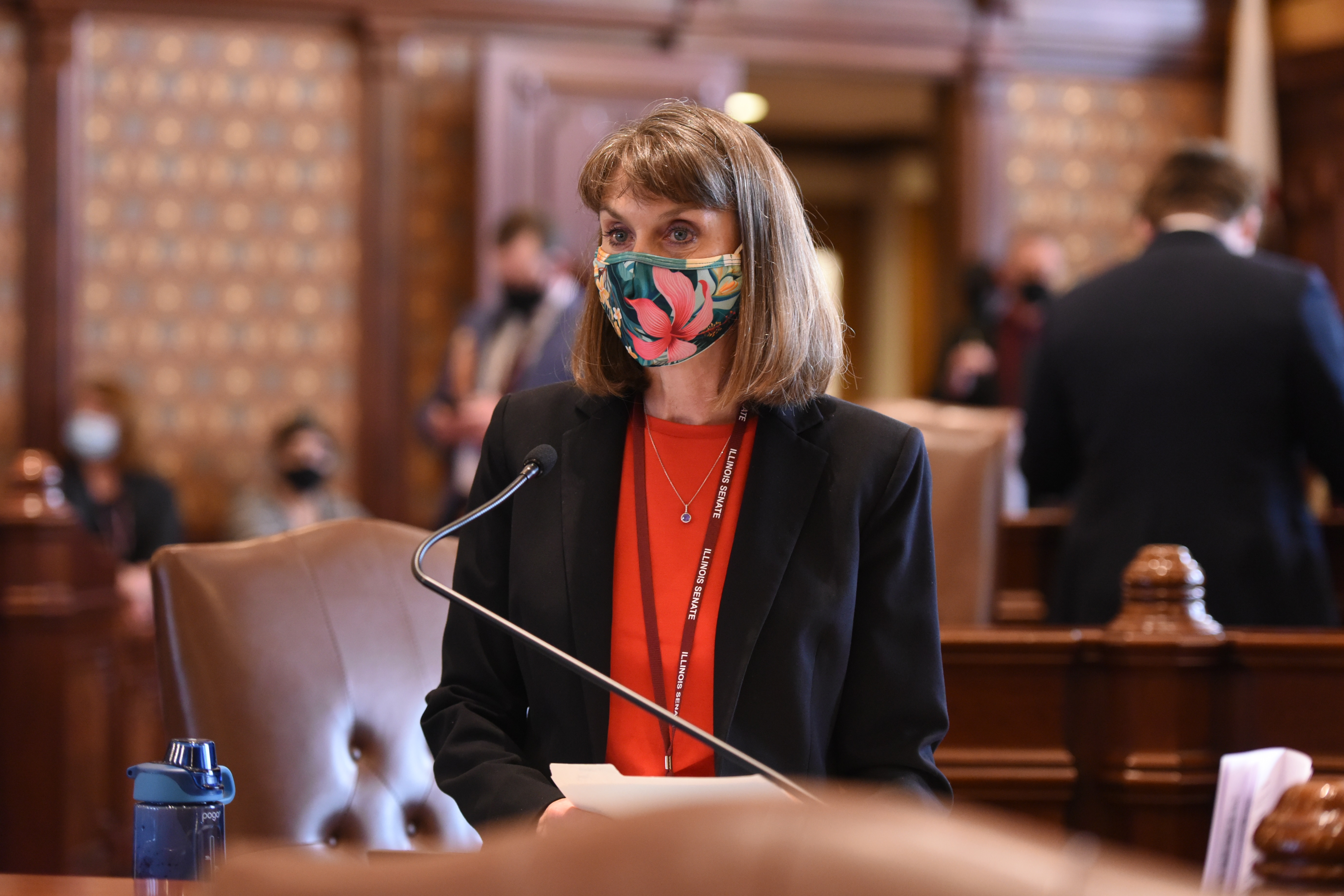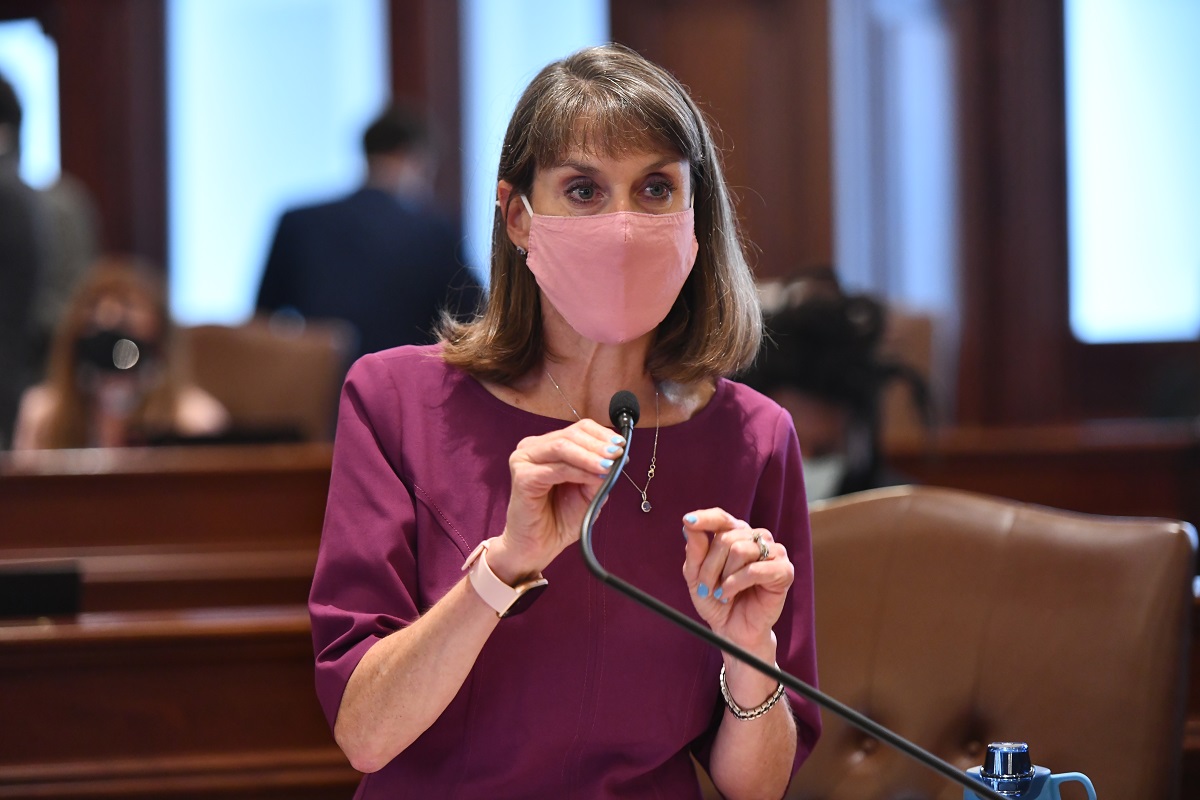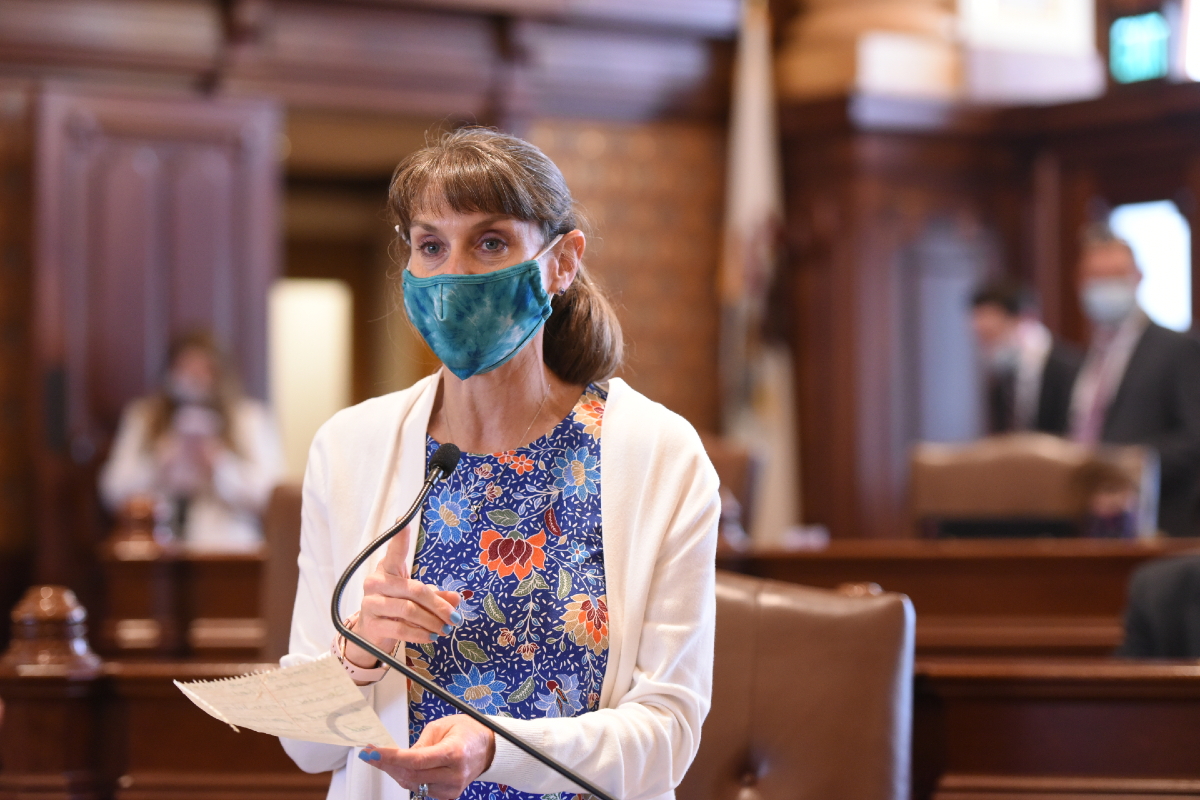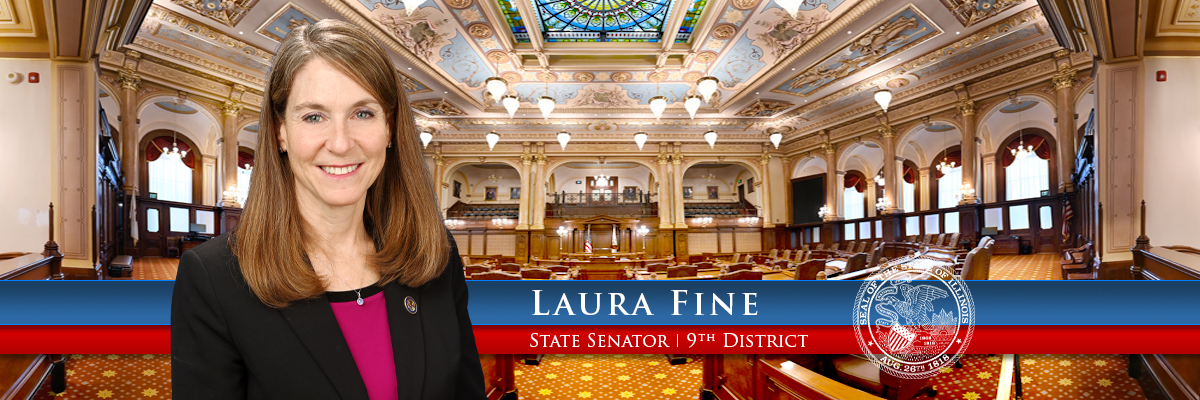- Details
- Category: Press Releases
 SPRINGFIELD – Illinois families will be able to access mental health and substance use disorder treatment without traveling long distances or waiting unreasonable amounts of time under a measure sponsored by State Senator Laura Fine (D-Glenview), which was signed into law Friday.
SPRINGFIELD – Illinois families will be able to access mental health and substance use disorder treatment without traveling long distances or waiting unreasonable amounts of time under a measure sponsored by State Senator Laura Fine (D-Glenview), which was signed into law Friday.
“Oftentimes individuals can’t afford to wait days or weeks for mental health or substance use disorder treatment,” Senator Fine said. “It’s imperative that Illinoisans have easy access to timely and reliable mental health care.”
Senator Fine’s measure requires insurers to provide timely and proximate access to treatment for mental, emotional, nervous or substance use disorders and conditions. Insurers will also have to make an exception to out-of-network copay requirements if there are not any in-network providers available nearby or timely enough.
Individuals seeking outpatient mental health treatment will not have to travel longer than 30 minutes or 30 miles for care in Cook, DuPage, Kane, Lake, McHenry and Will Counties under Senator Fine’s plan. The limit increases to 60 minutes or 60 miles in other Illinois counties. Additionally, Illinoisans will not have to wait more than 10 business days between requesting an initial appointment and being seen by a provider.
“Mental health care will now be as accessible for Illinois families as other medical care,” Senator Fine said. “This law has the potential to save countless lives across our state.”
Senate Bill 471 was signed into law Friday and will take effect Jan. 1, 2022.
- Details
- Category: Press Releases
 CHICAGO – Insurance coverage for telehealth treatment will be permanently expanded under a new law sponsored by State Senator Laura Fine (D-Glenview).
CHICAGO – Insurance coverage for telehealth treatment will be permanently expanded under a new law sponsored by State Senator Laura Fine (D-Glenview).
“Everyone should be able to seek treatment from the comfort of their home without having to worry about whether their insurance will cover the visit,” Senator Fine said. “Expanding insurance coverage for telehealth will expand accessibility to treatment for Illinois families.”
Under previous law, insurance companies could, but were not required to provide coverage for telehealth services. This law will ensure coverage for clinically appropriate and medically necessary telehealth services at the same rate as in-person services.
“People who may not feel comfortable leaving their homes or may not have reliable transportation options will have more options when it comes to seeking healthcare,” Senator Fine said. “With this law, telehealth will continue to be a useful tool for both providers and patients alike.”
House Bill 3308 was signed into law Thursday and is effective immediately.
- Details
- Category: Press Releases
 SPRINGFIELD – Illinois minors will have an easier time seeking work permits in Illinois under a new law sponsored by State Senator Laura Fine (D-Glenview).
SPRINGFIELD – Illinois minors will have an easier time seeking work permits in Illinois under a new law sponsored by State Senator Laura Fine (D-Glenview).
“The COVID-19 pandemic has encouraged us to meet people where they are, and this law gives young adults the flexibility to seek work permits remotely,” Senator Fine said. “Minors across Illinois will be able to utilize a streamlined process to access work permits.”
Children under 16, along with their parents or legal guardian, will now be able to meet with school issuing officers remotely to obtain a Child Labor Certificate. This option was previously made available as an emergency rule during the COVID-19 pandemic.
“Making remote meetings a permanent option for families and school issuing officers for the purpose of getting a work permit makes sense,” said Illinois Department of Labor Director Michael Kleinik. “It goes beyond the lessons learned and rules put in place during the peak of the pandemic.”
Public Act 102-0032 was signed into law June 25 and took effect immediately.
- Details
- Category: Press Releases
 GLENVIEW – Starting this month, unemployed Illinoisans in need of health insurance through the ACA Marketplace are eligible for financial assistance, State Senator Laura Fine (D-Glenview) announced Tuesday.
GLENVIEW – Starting this month, unemployed Illinoisans in need of health insurance through the ACA Marketplace are eligible for financial assistance, State Senator Laura Fine (D-Glenview) announced Tuesday.
“Every Illinoisan deserves access to quality, affordable health care, and I’m pleased to see President Biden’s American Rescue Plan paving the way for many families to be able to afford health insurance,” Senator Fine said. “Individuals struggling to find employment should take advantage of this special enrollment period to prevent a possible lapse in insurance coverage.”
Thanks to new tax credits made possible by the federal American Rescue Plan, Illinoisans who received, or are approved to receive, unemployment compensation in 2021 may be able to find lower-cost plans and reduce out-of-pocket health insurance premiums when purchasing plans through the ACA Marketplace.
To maximize savings, individuals are encouraged to enroll in coverage on HealthCare.gov before the current special enrollment period closes on Aug. 15. Illinoisans can receive enrollment assistance at GetCoveredIllinois.gov.
“Anyone who has received unemployment income in 2021 should submit a new application or update their existing one,” said Illinois Department of Insurance Acting Director Dana Popish Severinghaus. “You may find that with the advanced premium tax credits, your monthly premium could average $10 or less per month, or even $0.”
More information on the 2021 Special Enrollment Period in Response to COVID-19 for the ACA Marketplace and the American Rescue Plan can be found here.
More Articles …
- Senator Fine announces $3 million investment in local pedestrian path, street improvements
- Senator Fine: Investments in mental health care, social services will save lives
- Senator Fine votes to permanently expand telehealth coverage
- Birth centers could be more accessible to mothers-to-be under Senator Fine legislation
Page 47 of 75







